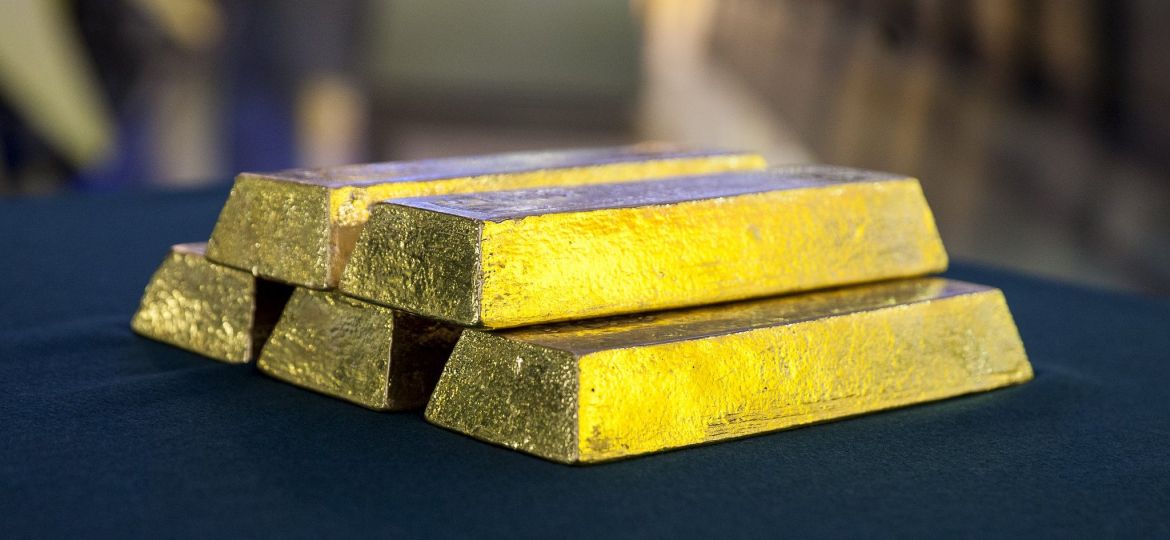
Kaczyński on what will happen to the Polish zloty after adopting the euro
Poland, like other countries joining the European Union (except Denmark), is obliged to adopt the euro as its official currency. However, adopting the euro is not an automatic process . To join the eurozone, a country must meet a number of criteria set out in the Maastricht Treaty .
During the conference entitled „Free Poles in the face of European Union treaty changes”, President Jarosław Kaczyński expressed [recording time: 3:31] his concerns about the impact of the euro on the economies of the countries that have adopted the common European currency. According to him, the exceptions are Germany and the Netherlands, which seem to be coping well with the euro.
The MP added [recording time: 3:32] that with the adoption of the euro, Poland will give its entire national gold reserves to the European Central Bank (ECB).
All the gold goes to the ECB? We are checking
According to the statute of the European Central Bank, countries joining the euro area are not obliged to transfer all their gold to the ECB. Such countries only need to contribute the appropriate amount to the ECB’s capital and reserves ( Article 30 ). What part of this amount will be paid in gold is determined by the ECB in an appropriate decision before the country’s admission to the euro zone ( 1 , 2 ).
The amount of the payment depends on the current size of the ECB’s capital and reserves and on the state’s share in the population and GDP of the European Union ( Article 48 ). The share in the ECB’s capital was calculated for Poland at approximately 6%. In 2013, the Ministry of Finance calculated that after adopting the new currency, Poland would have to pay EUR 5.47 billion.
Poland’s gold reserves at the end of 2023 amounted to approximately 359 tons ( p. 14 ) and are currently worth over EUR 23.68 billion.
Examples of countries that joined the euro zone
On the ECB website we can find information that the European bank’s foreign exchange reserves portfolio includes: US dollars, yen, renminbi, gold and special drawing rights . ECB data shows that in 2022–2023, the ECB’s foreign exchange reserves in gold increased from 504.8 t to 506.5 t.
As we read on the ECB website: „In connection with the introduction of the common currency by Croatia with effect from January 1, 2023, Hrvatska narodna banka transferred 56,256 ounces of gold to the ECB.” Therefore, Croatia donated approximately 1.59 tons of gold. It was only 15 percent. the amount transferred by that country to the ECB. The majority, 85%, were US dollars.
The amount donated by Lithuania was distributed in the same way . Both of these countries ( 1 , 2 ) purchased additional gold for the deposit and kept their reserves unchanged.
The 2013 interpellation dispelled doubts
The topic of the possible transfer of Polish gold reserves as a result of adopting the euro was discussed already in 2013. He spoke on this subject, among others: the then Undersecretary of State at the Ministry of Finance in interpellation no. 13805.
As he informed then: ’When the derogation regarding the common currency is abolished and Poland joins the euro zone, the European Central Bank (ECB) will take over the functions related to the implementation of monetary and exchange rate policy. Then the National Bank of Poland (NBP) – as one of the national banks of the Eurosystem – will be obliged to transfer part of the reserves to the ECB. In return, NBP will gain the right to participate in the process of managing the ECB’s reserves in accordance with the rules specified by the ECB.
To sum up, if Poland joins the euro zone, Poland will be obliged to transfer part of its assets, but the remaining reserves will remain the property of the National Bank of Poland.
Poland currently does not meet the conditions for admission to the euro zone
Joining the euro zone requires meeting the conditions specified by the so-called convergence criteria agreed in the Maastricht Treaty of 1992. According to the Dictionary of the Polish Language, convergence is „the assumed approximation of the level of economic indicators of the European Union Member States to the common average.” In other words, convergence is the attempt to bring the national economy closer to the EU average.
The conditions for convergence are provided in Art. 140 of the Treaty on the Functioning of the European Union (TFEU). As we read, the conditions that must be met are:
- stable prices – the inflation of a given country cannot be higher than 1.5 percentage points. inflation in the three countries with the most stable prices in the euro area .
- long-term balance of public finances – planned or actual public finance deficit of no more than 3%. and the state debt to GDP is not more than 60%,
- stable exchange rate – the country must participate in the ERM II exchange rate mechanism for at least 2 years, and the country’s currency rate should not have significant deviations from the euro rate (up to 15%),
- stable long-term interest rates – long-term interest rates may be higher by up to 2 percentage points. on interest rates in the three countries with the lowest interest rates.
In one of our analyses, we verified whether Poland currently meets the conditions for joining the euro zone. According to our findings, Poland does not meet most of the conditions.
